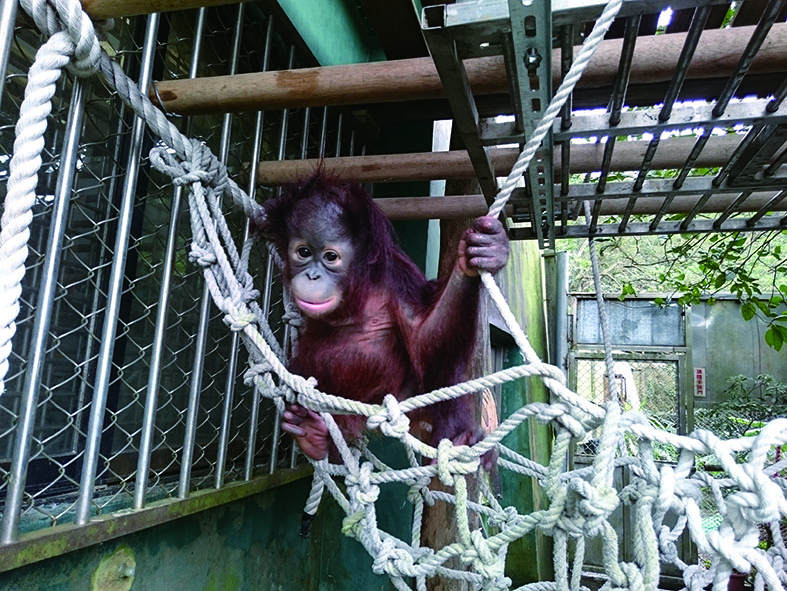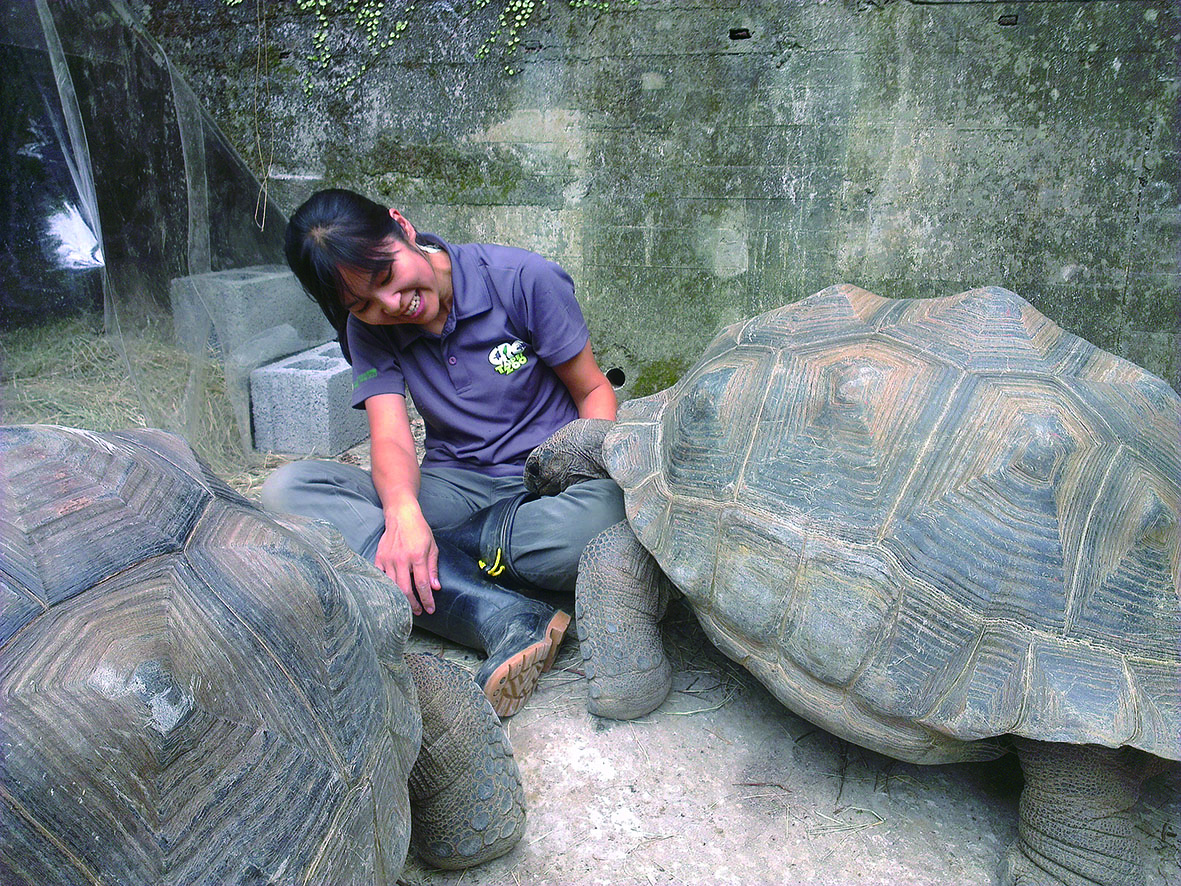By Chang, Chih-chuan (張芷娟), Wu, Chih-yen (吳芝妍)
Have you ever wondered what it would be like to work with animals? More specifically, haveyou ever dreamed of being a zookeeper? If you happen to be an animal lover, this could be one of the best jobs available.
As a zookeeper at Taipei Zoo for eight years, Jane Lu has looked after a diverse range of animals, particularly tigers, bears, reptiles and orangutans.
Working as a zookeeper is no mean feat. “On a daily basis, we begin by checking on all the animals, then we have to go over the daily chore of feeding, cleaning up the animals, and getting ready for their exhibiting,” said Lu. “After that we do animal training for the rest of the day.”
Abnormal behavior of zoo animals
Animals in the wild spend most of their time searching for food. However, zoo animals are routinely and consistently well-fed by the zookeepers. This means they are unable to demonstrate their natural behaviors and develop abnormal behaviors, also known as “stereotypic behavior”.
Stereotypic behavior comes in many forms, such as pacing back and forth, swaying of the head and shoulders, and regurgitation of food, only to eat it again or play with it.
In order to counteract this behavior, zookeepers create “behavior enrichment” activities, in addition to their daily chores, for the animals. These activities are designed to stimulate the animal’s mental activity. For some animals, this might involve hiding food around the exhibit or giving them a ball, sometimes with food hidden inside, to play with.
According to Lu, some animals tend to have fewer resources available due to the zoo’s preference, such as the panda bears. When this occurs, the zookeepers must improvise with the material they have and do it all by themselves.

Lu explained how, as animals are unable to speak for themselves, it is important to remain vigilant for signs of sickness or unusual behavior. “Observation is important for a zookeeper,” she said. “Some animals, particularly reptiles don’t respond much toward painful feelings, so when they start to act abnormally, such as stopping eating, it may be too late for any treatment. It’s extremely important to observe the small signs that they show.”
On top of behavior enrichment activities, zookeepers use animal training to keep the animal healthy. This does not refer to teaching the animals tricks like riding a bicycle or jumping through hoops. Rather, it refers to training with a specific zoo or health-related purpose. For example, other form of training involves slowly allowing the animals to adjust to human contact, so that the vet can do routine medical examination, like taking blood samples.
Becoming a zookeeper requires extensive and specialised training. One of the training exercises zookeepers have to undergo is target training, this enables them to move animals safely to different parts of their exhibit, or back to their cages.
“We give them a target stick and trained them to expect a reward when they touch it,” said Lu. “This helps us to move animals like the tortoise around the exhibit. When it comes to weighing them, it’s much easier for them to walk on the scale by following the target stick than to physically catch them and lift them.”
However, animal training is not an easy task, and not all the animal keepers share the same philosophy. Some senior keepers may consider it a waste of time. Instead, they will simply use a water hose to force the animals to move and retreat to the back of their cages.
Zookeeping isn’t a walk in the park
Being a zookeeper has its challenges. It is a dirty, sweaty, and at times dangerous job. A zookeeper must always be on guard. The first thing he or she should acknowledge while taking care of the animals is that no matter how friendly they seem, they are wild animals. “We don’t go in with them and we always have protective contact between the bars,” Lu adds. “It is definitely not an easy job, but the reward is worth the trouble.”
“It’s fascinating when the animals start recognizing you, it really makes our work worthwhile. Little did I know I will fall in love with an orangutan,” she said fondly.

According to Lu, compared with the average salaries in Taiwan, the income of a zookeeper is not bad. However, it is still lower than that of other countries, and there are not many chances to gain a promotion.
It’s not always pleasant to be a zookeeper, and for every plus there is a minus. “My supervisor wants to pay more attention to breeding the animals, but I feel like the captive environment is inadequate for them,” Lu sighed.
Most zookeepers treated the animals as if were their own and want the best for them. “I really hope that one day zoos no longer exist just for entertainment,” said Lu.
Modern zoos focus on conservation, entertainment, education, research and the welfare of the animals, going beyond simply displaying the animals to the public. Yet most animals, especially large mammals such as orangutans, are never able to return to the wild after living in the zoo as they already lost their natural instincts to survive in the wild.
It is wonderful to see the animals face to face, but with the advances in technology, new ways are emerging to appreciate and learn more about the animals without paying a visit to the zoo.
“Maybe someday, I wish ….” Lu said with a wistful smile.



